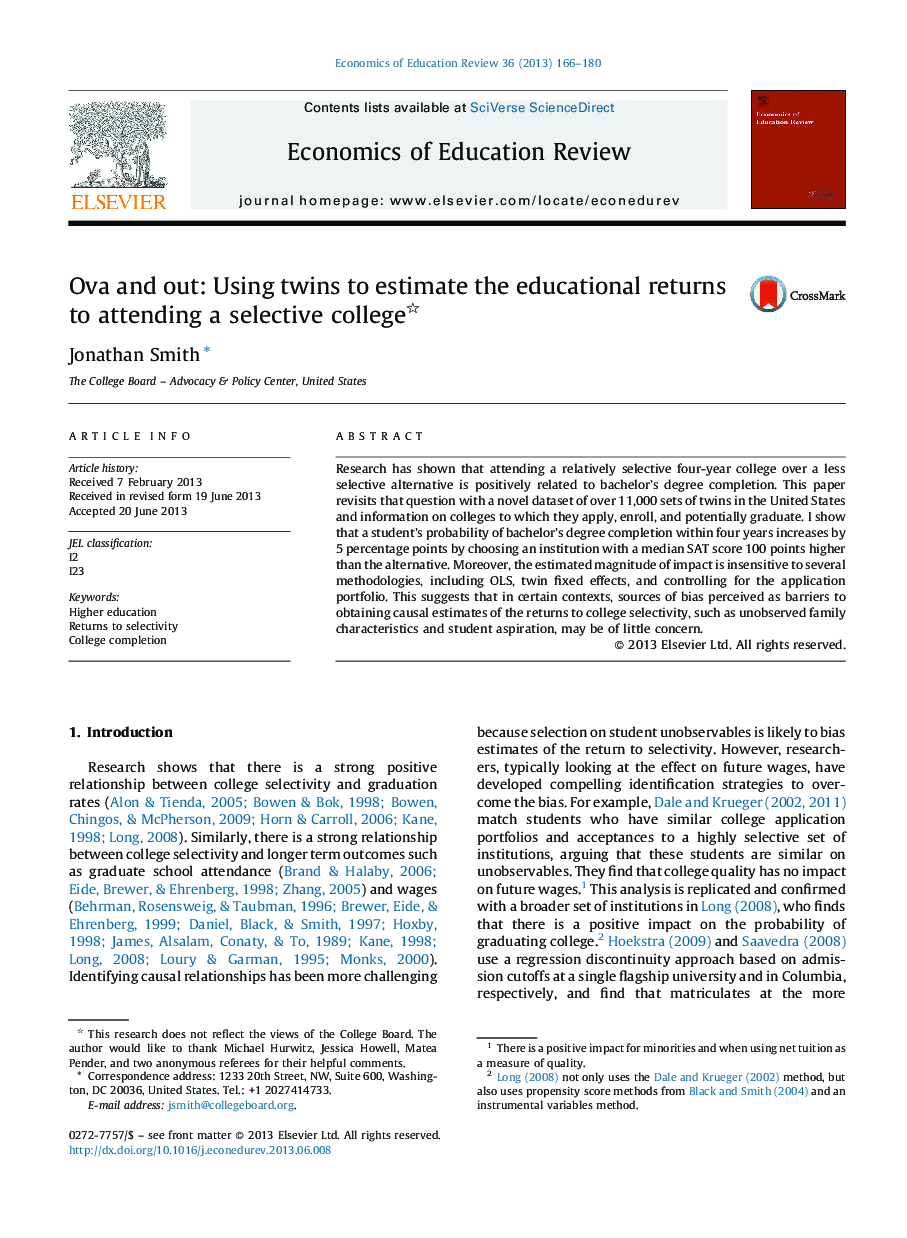| Article ID | Journal | Published Year | Pages | File Type |
|---|---|---|---|---|
| 6840928 | Economics of Education Review | 2013 | 15 Pages |
Abstract
Research has shown that attending a relatively selective four-year college over a less selective alternative is positively related to bachelor's degree completion. This paper revisits that question with a novel dataset of over 11,000 sets of twins in the United States and information on colleges to which they apply, enroll, and potentially graduate. I show that a student's probability of bachelor's degree completion within four years increases by 5 percentage points by choosing an institution with a median SAT score 100 points higher than the alternative. Moreover, the estimated magnitude of impact is insensitive to several methodologies, including OLS, twin fixed effects, and controlling for the application portfolio. This suggests that in certain contexts, sources of bias perceived as barriers to obtaining causal estimates of the returns to college selectivity, such as unobserved family characteristics and student aspiration, may be of little concern.
Related Topics
Social Sciences and Humanities
Economics, Econometrics and Finance
Economics and Econometrics
Authors
Jonathan Smith,
